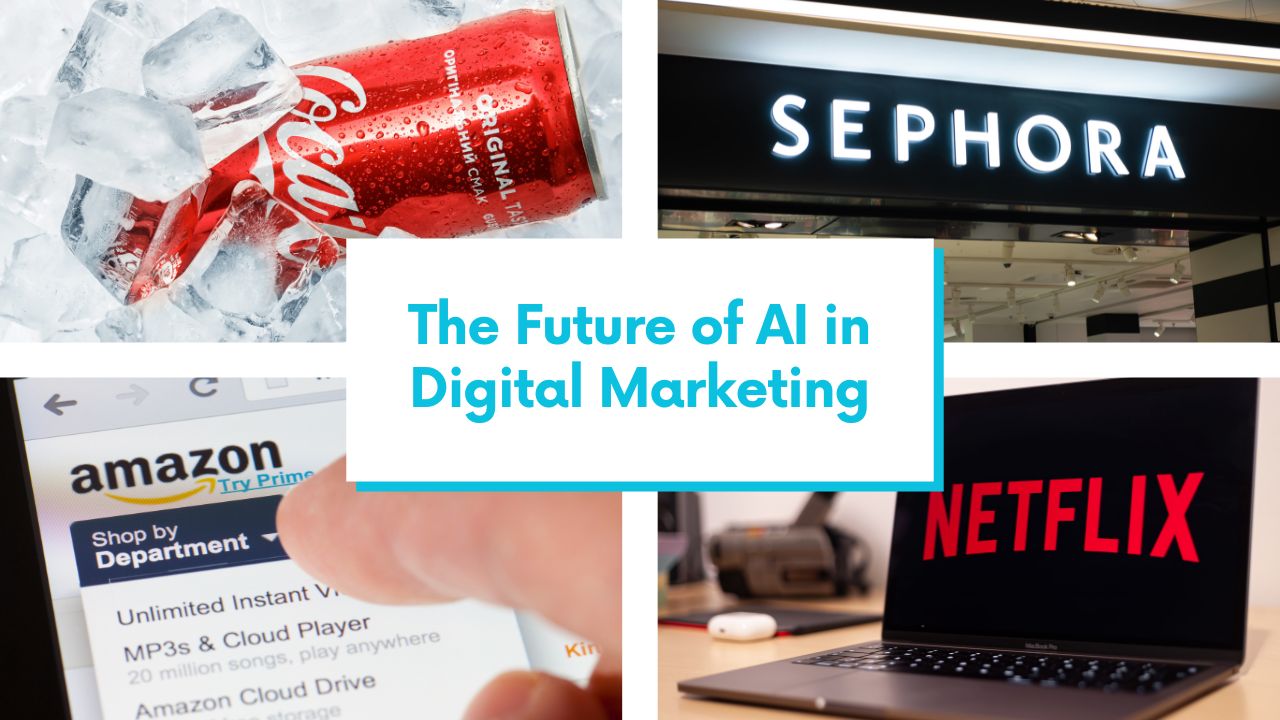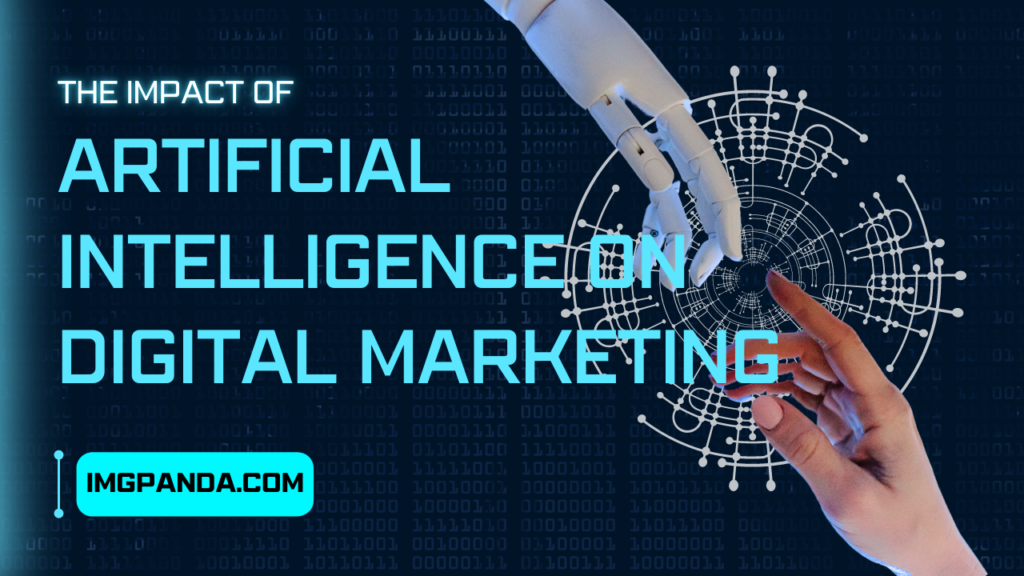Introduction
Artificial Intelligence (AI) has become increasingly prevaAilent in digital marketing in recent years, with businesses leveraging its capabilities to improve customer targeting and personalization, enhance customer experience, increase efficiency and cost-effectiveness, and gain greater insights and data analysis. As AI technology continues to advance, its impact on digital marketing is expected to become even more significant.
In this blog post, we will explore the benefits and challenges of AI in digital marketing, examine real-world examples of its application, and discuss the future implications of this technology on the industry.
Also Read This: Debunking Myths About Dailymotion and Its Safety for Children
The Benefits of AI in Digital Marketing
Artificial Intelligence (AI) offers numerous benefits to digital marketing. Here are some of the key advantages:
Improved customer targeting and personalization:
AI helps businesses analyze large volumes of customer data, enabling them to identify patterns and preferences that were previously difficult to discern. This information can be used to create personalized marketing campaigns that resonate with individual customers, resulting in higher engagement and conversion rates.
Enhanced customer experience:
AI-powered chatbots and virtual assistants can provide round-the-clock customer service, answering questions and resolving issues in real-time. This enhances the customer experience by providing prompt and personalized support.
Increased efficiency and cost-effectiveness:
AI can automate many routine tasks, such as email marketing and social media management, freeing up marketers to focus on more strategic initiatives. This can lead to significant cost savings and increased efficiency.
Greater insights and data analysis:
AI tools can analyze vast amounts of customer data, providing marketers with valuable insights into customer behavior and preferences. This data can inform future marketing campaigns, helping businesses to make data-driven decisions.
Overall, AI can help businesses to improve the effectiveness of their marketing campaigns, while reducing costs and increasing efficiency. By leveraging AI technology, businesses can gain a competitive edge in the digital marketplace.
[caption id="attachment_182868" align="alignnone" width="1500"] The Benefits of AI in Digital Marketing[/caption]
The Benefits of AI in Digital Marketing[/caption]
Also Read This: Downloading from 123RF: Easy Steps
AI Applications in Digital Marketing
Artificial Intelligence (AI) is already being used in a variety of ways in digital marketing. Here are some of the most common applications:
Chatbots and customer service:
AI-powered chatbots can provide customer service around the clock, answering frequently asked questions and resolving issues in real-time. This can significantly enhance the customer experience, while also reducing the workload on customer support teams.
Predictive analytics and lead scoring:
AI can analyze large amounts of customer data to predict which leads are most likely to convert. This enables businesses to prioritize their marketing efforts, focusing on the leads that are most likely to result in sales.
Image and voice recognition for search and advertising:
AI can recognize images and voice commands, enabling customers to search for products using images or voice rather than text. This can enhance the customer experience and make it easier for customers to find what they are looking for.
Content creation and optimization:
AI can analyze customer data to create personalized content, such as emails and social media posts. It can also optimize content for search engines, ensuring that it ranks well in search results.
Overall, AI has a wide range of applications in digital marketing, from enhancing the customer experience to optimizing marketing campaigns. As AI technology continues to advance, we can expect to see even more innovative applications of this technology in the future.
[caption id="attachment_182869" align="alignnone" width="1500"] AI Applications in Digital Marketing[/caption]
AI Applications in Digital Marketing[/caption]
Also Read This: How to Get Adobe Stock Templates for Free
Potential Risks and Challenges of AI in Digital Marketing
Case Studies: Real-World Examples of AI in Digital Marketing
While Artificial Intelligence (AI) offers numerous benefits to digital marketing, there are also potential risks and challenges that need to be considered. Here are some of the most common concerns:
Data privacy and security concerns:
AI relies on vast amounts of customer data to function effectively, and this can raise concerns around data privacy and security. Businesses need to ensure that they are collecting and storing customer data in a secure and ethical manner, and that they are transparent about how this data is being used.
Potential job displacement:
As AI technology becomes more advanced, there is a risk that it could lead to job displacement in the marketing industry. Many routine marketing tasks can now be automated using AI, and this could lead to job losses for marketing professionals.
Dependence on technology and lack of human touch:
While AI can enhance the efficiency and effectiveness of marketing campaigns, there is a risk that it could lead to a lack of human touch. Customers may prefer interacting with human customer service representatives rather than chatbots, for example, and businesses need to ensure that they are still providing a personalized and human touch to their marketing efforts.
Overall, businesses need to be aware of the potential risks and challenges of AI in digital marketing, and take steps to address these concerns. This includes ensuring that they are collecting and using customer data in an ethical and transparent manner, and finding ways to incorporate the human touch into their marketing campaigns.
[caption id="attachment_182870" align="alignnone" width="1500"] Potential Risks and Challenges of AI in Digital Marketing[/caption]
Potential Risks and Challenges of AI in Digital Marketing[/caption]
Also Read This: Viewing and Managing Your Uploaded Images on Adobe Stock
The Future of AI in Digital Marketing
There are numerous examples of businesses leveraging Artificial Intelligence (AI) in their digital marketing efforts. Here are a few real-world case studies:
Coca-Cola:
Coca-Cola uses AI to create personalized marketing campaigns for its customers. By analyzing customer data, Coca-Cola can identify individual preferences and tailor its marketing campaigns accordingly. This has led to increased engagement and higher conversion rates for the brand.
Sephora:
Sephora uses AI to provide personalized product recommendations to its customers. By analyzing customer data, Sephora can identify which products are most likely to appeal to individual customers and make personalized recommendations. This has led to increased sales and improved customer satisfaction.
Netflix:
Netflix uses AI to personalize its recommendations to individual users. By analyzing viewing history and other data, Netflix can recommend movies and TV shows that are most likely to appeal to individual users. This has led to increased engagement and retention for the streaming service.
Amazon:
Amazon uses AI to optimize its search results and product recommendations. By analyzing customer data, Amazon can identify which products are most likely to appeal to individual customers and tailor its recommendations accordingly. This has led to increased sales and improved customer satisfaction for the e-commerce giant.
These case studies demonstrate how AI can be used to enhance the effectiveness of digital marketing campaigns, by providing personalized recommendations and targeting individual customers. As AI technology continues to advance, we can expect to see even more innovative applications of this technology in the marketing industry.
[caption id="attachment_182872" align="alignnone" width="1280"] The Future of AI in Digital Marketing[/caption]
The Future of AI in Digital Marketing[/caption]
Also Read This: The Inspiring Story of VectorStockâs Journey from Startup to Success
Pros & Cons
| Pros | Cons |
|---|---|
| Improved customer targeting and personalization | Data privacy and security concerns |
| Enhanced customer experience | Potential job displacement |
| Increased efficiency and cost-effectiveness | Dependence on technology and lack of human touch |
| Greater insights and data analysis |
Also Read This: How to Embed into Behance
Conclusion
In conclusion, Artificial Intelligence (AI) has the potential to revolutionize the digital marketing industry. By leveraging AI technology, businesses can improve customer targeting and personalization, enhance the customer experience, increase efficiency and cost-effectiveness, and gain valuable insights from data analysis. Real-world examples from companies like Coca-Cola, Sephora, Netflix, and Amazon demonstrate the effectiveness of AI in digital marketing campaigns.
However, businesses must also be aware of the potential risks and challenges associated with AI, such as data privacy and security concerns, potential job displacement, and a lack of human touch in marketing efforts. To fully leverage the benefits of AI in digital marketing, businesses need to carefully consider these factors and find ways to address potential risks while optimizing the benefits.
Overall, AI has the potential to enhance the effectiveness of digital marketing campaigns and provide a competitive edge for businesses that leverage this technology effectively. As AI technology continues to advance, we can expect to see even more innovative applications of this technology in the marketing industry.
FAQs
What is AI in digital marketing?
AI in digital marketing refers to the use of Artificial Intelligence technology to enhance marketing campaigns. This includes leveraging machine learning, natural language processing, and other AI technologies to improve customer targeting and personalization, automate routine marketing tasks, and gain insights from data analysis.
What are some benefits of AI in digital marketing?
Some benefits of AI in digital marketing include improved customer targeting and personalization, enhanced customer experience, increased efficiency and cost-effectiveness, and greater insights from data analysis.
What are some potential risks of AI in digital marketing?
Potential risks of AI in digital marketing include data privacy and security concerns, potential job displacement, and a lack of human touch in marketing efforts.
What are some real-world examples of AI in digital marketing?
Real-world examples of AI in digital marketing include Coca-Cola using AI to create personalized marketing campaigns, Sephora using AI to provide personalized product recommendations, Netflix using AI to personalize its recommendations, and Amazon using AI to optimize its search results and product recommendations.
How can businesses leverage AI in their digital marketing efforts?
Businesses can leverage AI in their digital marketing efforts by collecting and analyzing customer data, using machine learning and natural language processing to personalize marketing campaigns, automating routine marketing tasks, and gaining insights from data analysis. However, businesses must also be aware of the potential risks and challenges associated with AI and find ways to address these concerns.
